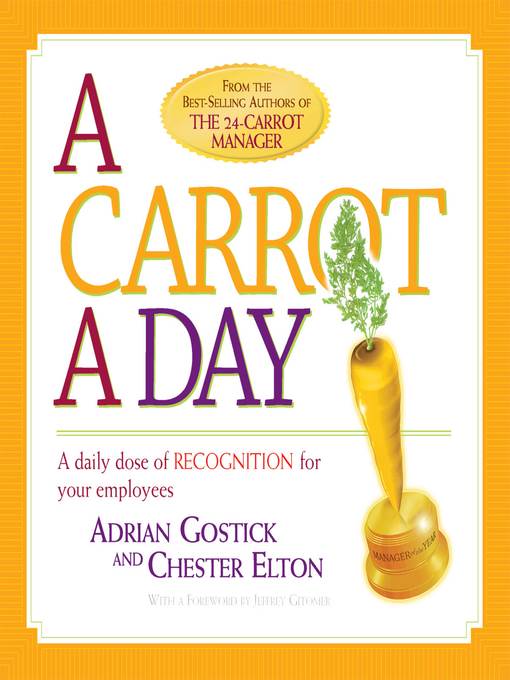
A Carrot a Day
- اطلاعات
- نقد و بررسی
- دیدگاه کاربران
نقد و بررسی

September 1, 2004
In this third installment of the Carrots business books (following The 24-Carrot Manager), authors Gostick and Elton continue to urge managers to dangle these bright, crunchy sticks in front of their employees--metaphorically speaking. A symbol of recognition, reward and positive reinforcement, the Carrot creates an environment in which workers will propel themselves to an excellence that lies just beyond their grasp. Organized like a page-a-day calendar, the book parcels out the sometimes unwieldy Carrot philosophy in manageable doses, offering inspirational anecdotes and cautionary tales (pity the employee who received a company mug for a million-dollar deal); examples of simple yet memorable employee rewards (a balloon bouquet, the use of your coveted parking spot for a week); and sensible psychological insights (e.g., "When we are complimented for our efforts and good work... we gain the power to overcome obstacles and problems because we know people support and believe in us"). The idea that a steady diet of Carrots helps promote a sound, healthy business ties the book together, visually and thematically. But sometimes, the pages grow repetitive and, in lieu of some tepid reminders to boost self-esteem, the authors could have devoted some days to exploring an interesting corollary to their primary message, one they give only cursory mention in the introduction: the blunders of well-meaning managers who offer rewards for effort alone, regardless of excellence.

October 11, 2004
In this third installment of the Carrots business books (following The 24-Carrot Manager), authors Gostick and Elton continue to urge managers to dangle these bright, crunchy sticks in front of their employees--metaphorically speaking. A symbol of recognition, reward and positive reinforcement, the Carrot creates an environment in which workers will propel themselves to an excellence that lies just beyond their grasp. Organized like a page-a-day calendar, the book parcels out the sometimes unwieldy Carrot philosophy in manageable doses, offering inspirational anecdotes and cautionary tales (pity the employee who received a company mug for a million-dollar deal); examples of simple yet memorable employee rewards (a balloon bouquet, the use of your coveted parking spot for a week); and sensible psychological insights (e.g., "When we are complimented for our efforts and good work... we gain the power to overcome obstacles and problems because we know people support and believe in us"). The idea that a steady diet of Carrots helps promote a sound, healthy business ties the book together, visually and thematically. But sometimes, the pages grow repetitive and, in lieu of some tepid reminders to boost self-esteem, the authors could have devoted some days to exploring an interesting corollary to their primary message, one they give only cursory mention in the introduction: the blunders of well-meaning managers who offer rewards for effort alone, regardless of excellence.
Copyright 2004 Library Journal, LLC Used with permission.




دیدگاه کاربران